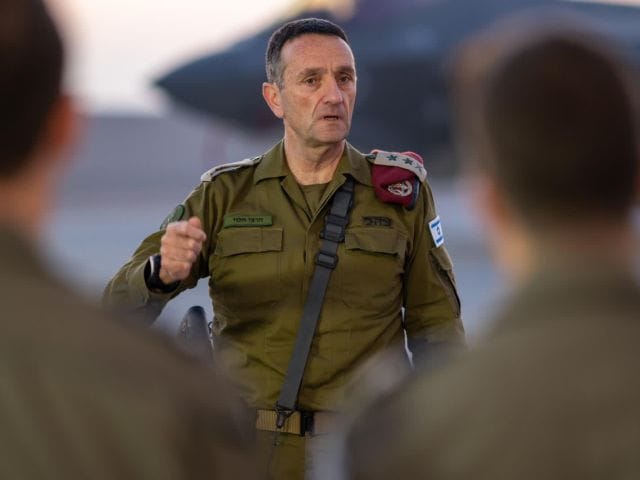The leadership in Israel has decided to respond strongly to the recent Iranian attack on Israeli soil. The aim is to prevent Iran from shifting the balance of power in the region, which could undermine Israel's deterrence capability. This decision came after a meeting of the military cabinet, as reported by Mako.
Two main options are under consideration. The first is a limited response, aimed at avoiding a larger regional conflict, which concerns not only Israel but also the United States and other Western nations. The second option involves a more forceful strike, but one that is acceptable to the American administration.
Lieutenant General Herzi HaLevi, the Chief of the General Staff, visited the Nevatim airbase, which was targeted in the Iranian attack. There, he met with personnel from the 140th Air Force Squadron, who operate the latest F-35 combat aircraft.
"We are carefully considering our next steps. The significant barrage of ballistic missiles, cruise missiles, and drones into Israeli territory will not be left unanswered," stated the military leader, as quoted by the IDF Spokesperson's Unit.
During talks with Iraqi Prime Minister Mohammed Shia' Al Sudani, US President Joe Biden addressed the possibility of an Israeli strike on Iran. "We are committed to ensuring Israel's security and are prepared to defend our interests and allies, including Iraq," he affirmed.
NBC, citing an official Israeli source, reported that an Israeli strike on Iran could occur soon. The source emphasized that any Israeli action would be coordinated with the United States.
This discussion followed a lengthy meeting of the military cabinet, where there was unanimous agreement that it is crucial for Israel's response to the Iranian attack to happen swiftly.
According to American sources, President Biden is not expected to oppose a strike on Iran. Ynet quoted a source in Israel's defense establishment as saying that Tehran is currently feeling uneasy – a development viewed positively.












